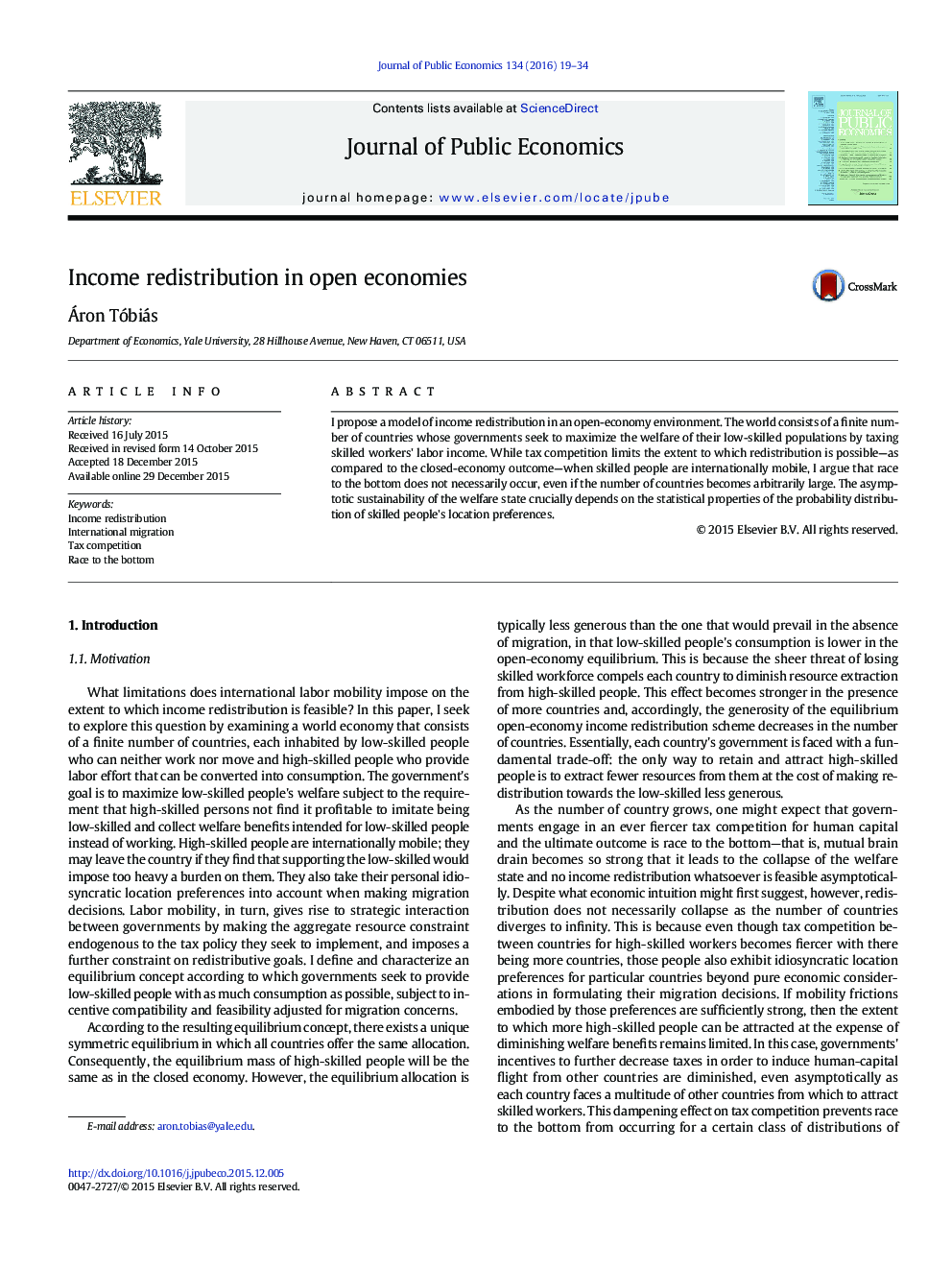| Article ID | Journal | Published Year | Pages | File Type |
|---|---|---|---|---|
| 968648 | Journal of Public Economics | 2016 | 16 Pages |
•I present a model of optimal labor-income taxation with cross-border mobility.•Mobility frictions make it more difficult for countries to attract skilled workers.•Redistribution may survive even if many countries engage in income-tax competition.•The precise answer depends on high-skilled people's location preferences.
I propose a model of income redistribution in an open-economy environment. The world consists of a finite number of countries whose governments seek to maximize the welfare of their low-skilled populations by taxing skilled workers' labor income. While tax competition limits the extent to which redistribution is possible—as compared to the closed-economy outcome—when skilled people are internationally mobile, I argue that race to the bottom does not necessarily occur, even if the number of countries becomes arbitrarily large. The asymptotic sustainability of the welfare state crucially depends on the statistical properties of the probability distribution of skilled people's location preferences.
